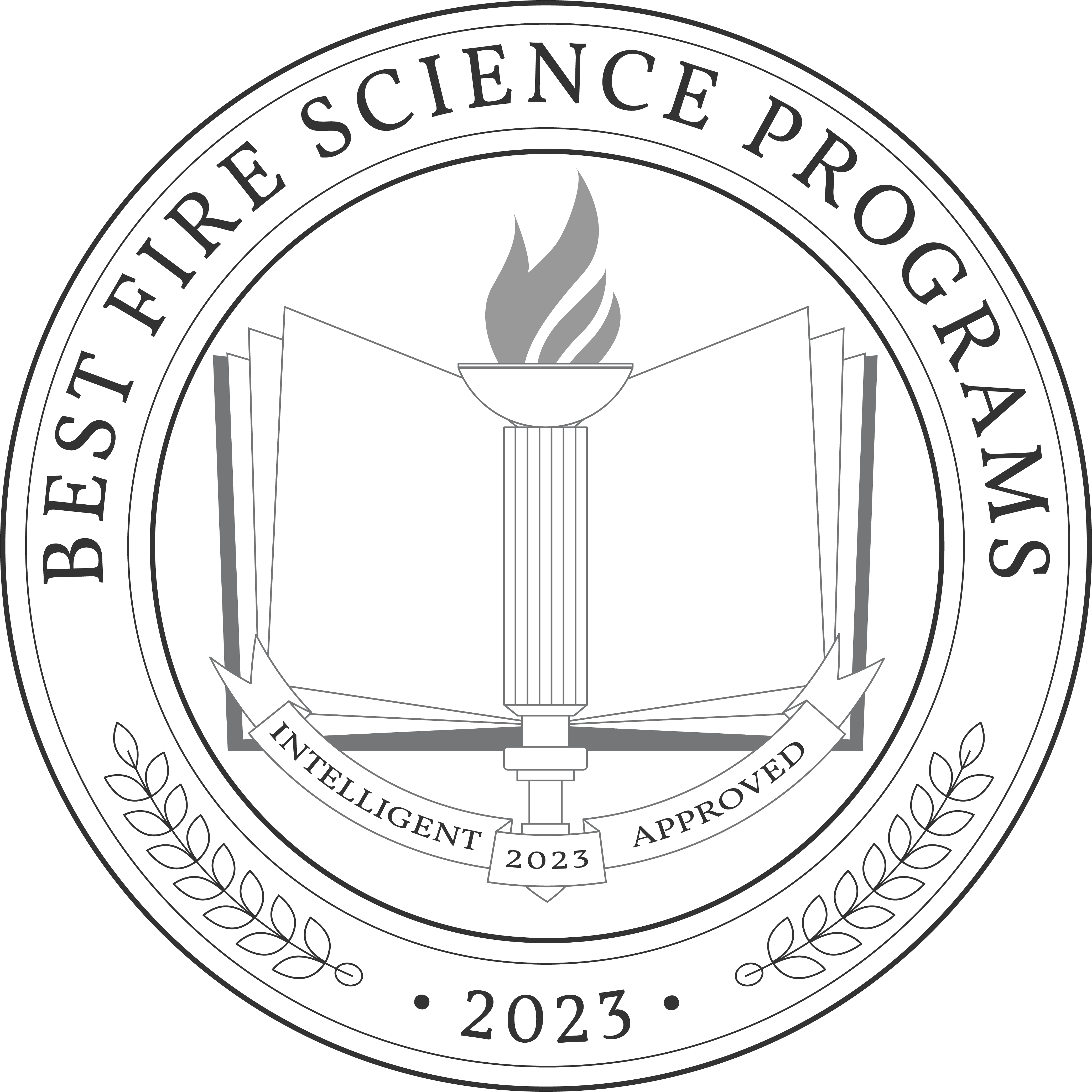Why This Matters
-
FIRE INSPECTORS EARN $61,600 PER YEAR
The median annual wage of fire inspectors and investigators is $21,850 more than the median annual salary of all U.S. occupations ($39,810).
-
FIREFIGHTERS MAKE $50,850 PER YEAR
The median hourly wage for firefighters is $24.45, which is higher than the median hourly wage ($19.14) for all other occupations.
-
DEMAND FOR FOREST FIRE INSPECTORS IS EXPECTED TO INCREASE BY 24%
It’s estimated there will be 2,800 forest fire inspectors and prevention specialists nationwide by the end of the next decade. Skilled professionals are needed to prevent and control destructive wildfires that continue to affect states such as California, Texas, Colorado, and Arizona.
Our Research
This list covers associate’s, bachelor’s, and master’s degree programs in fire science. Graduates are prepared for careers as environmental health and safety managers, fire protection engineers, and deputy fire chiefs. Degrees offered include Associate of Arts in Fire Science, Associate of Applied Science of Fire Science Technology, Bachelor of Science in Emergency Management, Bachelor of Science in Fire and Safety Engineering Technology, Master of Science in Emergency and Disaster Management, and Master of Science in Fire Protection Engineering.
Professional accreditation is given to higher education programs that meet specific academic criteria. The schools on this list are accredited at the national and regional levels. Accreditation organizations for the fire science programs in our research include the International Fire Service Accreditation Congress (IFSAC), the Accreditation Board of Engineering and Technology (ABET), and the Southern Association of Colleges and Schools Commission on Colleges (SACSCOC).
We evaluated each program on the basis of flexibility, faculty, course strength, cost, and reputation. Then we calculated the Intelligent Score for each program on a scale from 0 to 100. For a more extensive explanation, check out Our Ranking Methodology.
- 76 hours to write this article
- 156 universities and colleges we assessed
- 376 education programs we compared
The Top 40 Fire Science Degree Programs

Discover More Options
What You Should Know About This Degree
When pursuing a career in fire service and environmental safety, you should decide which degree program is right for you. Even though no formal degree is required to be a firefighter, the study of fire science can open up future career opportunities such as fire inspector, fire investigator, and fire marshal. Prospective firefighters will need to meet the qualifications set by each state and firehouse. For those wishing to pursue leadership roles in emergency and disaster management, an undergraduate degree in fire science can be valuable. Students with professional work experience who wish to pursue senior-level positions in crisis management and organize systems to deal with natural wildfires may wish to pursue a master’s degree. Determine which job opportunities in fire safety and environmental management you’d like to be eligible for when determining which program is right for you.
Certifications in fire science specialize in fire behavior, fire prevention, and rescue operations. Obtaining advanced certifications can also prepare professionals for leadership roles as captains and lieutenants. Consider obtaining certifications from the National Fire Protection Association, such as Certified Fire Protection Specialist (CFPS), Certified Fire Plan Examiner (CFPE), and Certified Hazard Recognition Specialist (CHRS).
The job outlook for fire inspectors and firefighters is very positive and expected to increase faster than the average growth rate of all other occupations. 20,300 more firefighters are needed nationwide by 2029.
What’s Next?
Here are some questions to ask yourself when researching a degree in fire science:
- Am I eligible for this program? Students from all educational backgrounds with a high school diploma or GED may pursue an associate’s or bachelor’s degree in fire science. Master’s degree programs require a bachelor’s degree or equivalent in a relevant field. Some master’s programs may require students to have prior professional work experience.
- How long does it take to complete this online degree? Associate’s programs take two years to complete. Bachelor’s programs in fire science require four years of full-time study. Master’s degree programs in fire science take two to three years to complete. Students must finish a minimum of 60 credits and a maximum of 180 credits to graduate from the undergraduate fire science programs on this list.
Every program has different entry requirements and application deadlines. Make sure to turn in all application materials on time. Research detailed information by visiting the school’s website or contacting the school’s admissions department.
Determine how you will cover the financial costs of your education. Some employers may cover the costs of your studies. You may also be eligible for federal student aid, scholarships, and grants.